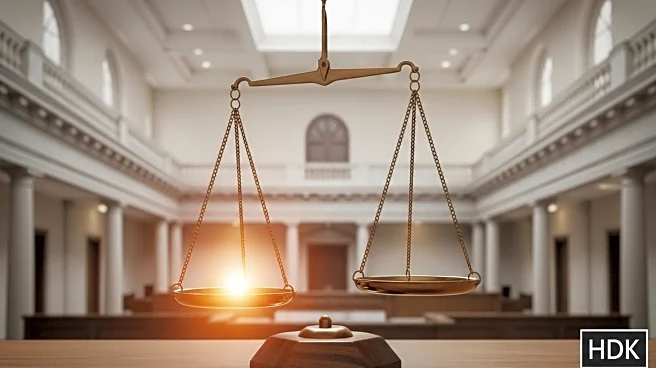What's Happening?
U.S. Supreme Court Justice Sonia Sotomayor has expressed concern over attempts by some legal professionals to criminalize free speech. Speaking at New York Law School's 'Constitution & Citizenship Day Summit,' Sotomayor criticized the notion that free speech should be criminalized, suggesting that such views indicate a failure in legal education. Her comments come amid broader debates about free expression and the role of social media in spreading misinformation. Sotomayor emphasized the importance of civics education in understanding the constraints on leaders and the difference between a king and a president. Her remarks follow recent statements by U.S. Attorney General Pam Bondi about targeting hate speech, highlighting ongoing tensions around free speech and its limits.
Why It's Important?
Justice Sotomayor's remarks highlight a critical issue in contemporary American society: the balance between free speech and the regulation of harmful or hateful speech. Her comments underscore the importance of civics education in fostering an informed citizenry capable of engaging in democratic processes. The debate over free speech is particularly relevant in the context of social media, where misinformation can spread rapidly. Sotomayor's emphasis on media literacy points to the need for individuals to critically evaluate information sources. The discussion also reflects broader societal concerns about political violence and the erosion of civil discourse, issues that have become increasingly prominent in recent years.
Beyond the Headlines
Sotomayor's comments may prompt legal educators to reassess how civics and constitutional law are taught in law schools. Her critique of the legal profession's approach to free speech could lead to discussions about the ethical responsibilities of lawyers in upholding democratic principles. Additionally, the focus on media literacy suggests a potential shift in educational priorities, with an increased emphasis on teaching students how to navigate and critically assess digital information. These developments could have long-term implications for how future generations understand and engage with the principles of free speech and democracy.










